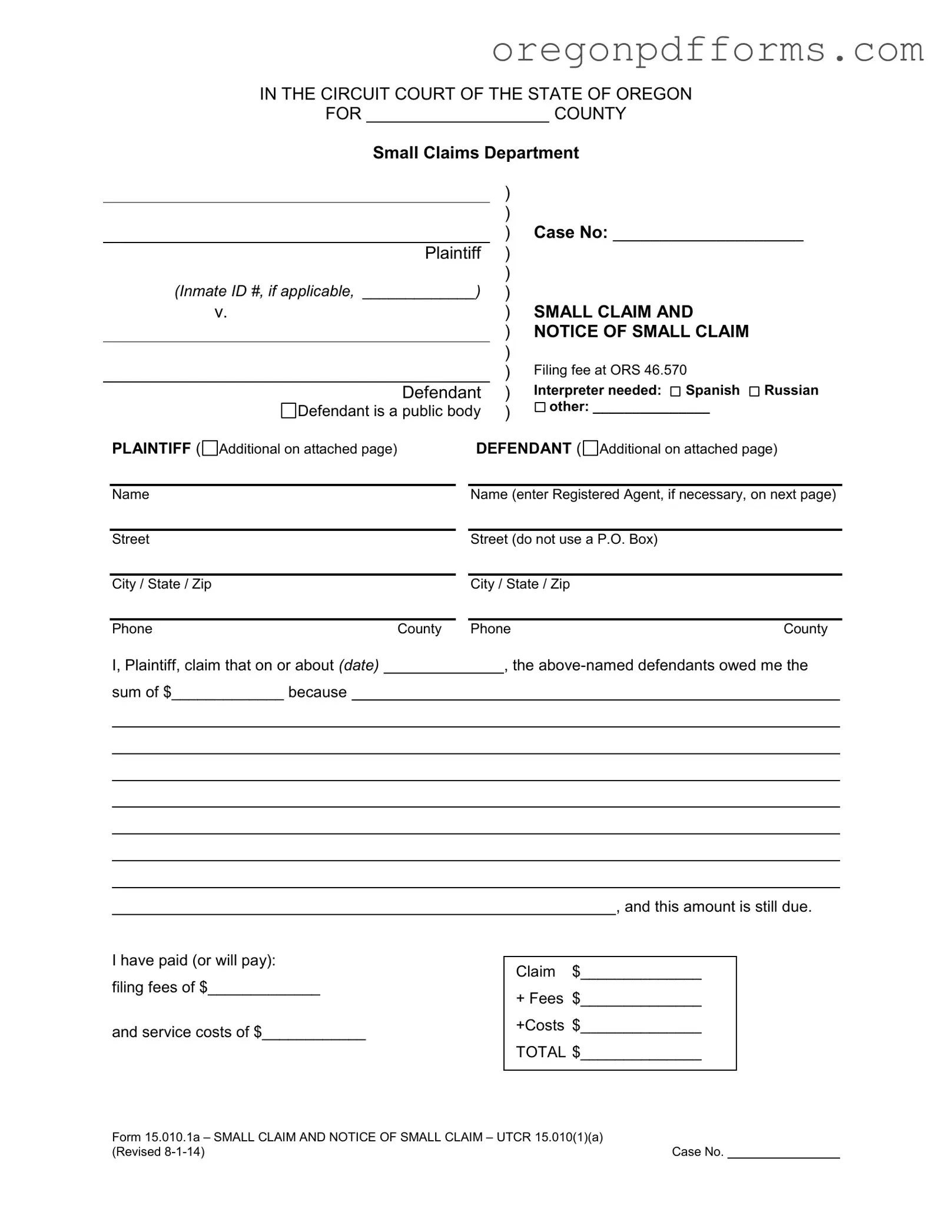The Oregon Small Claim form is utilized to file a small claims case in the Circuit Court. It allows individuals to seek compensation for amounts owed to them, typically in disputes involving less than $10,000. This form streamlines the process of taking legal action without the need for extensive legal representation, making it accessible for everyday individuals to resolve their disputes efficiently.
Filling out the Oregon Small Claim form involves several key steps:
-
Identify the plaintiff and defendant: Include your name and contact information, as well as the name and contact details of the defendant.
-
State the claim: Clearly describe the reason for your claim, including the date of the incident and the amount owed.
-
Detail any fees: List the filing fees and service costs associated with your claim.
-
Sign and date the form: Your signature indicates that you have made a genuine effort to resolve the issue prior to filing.
Ensure that all information is accurate and complete to avoid delays in processing your claim.
What are the filing fees associated with a small claim?
Filing fees for small claims in Oregon vary based on the amount you are claiming. Generally, if the amount claimed is:
-
$2,500 or less, the fee is lower.
-
More than $2,500, the fee increases.
-
If you request a jury trial, this option is available only for claims over $750 and comes with its own fee.
Check with your local court for the exact fee schedule, as it may differ by location.
What happens after I file the small claim?
Once you file the small claim, the defendant will receive a notice detailing the claim against them. They must respond within 14 days. The options available to them include:
-
Paying the claim along with any associated fees directly to you.
-
Requesting a hearing to contest the claim.
-
Demanding a jury trial, if applicable.
If the defendant fails to respond within the specified timeframe, you may ask the court to issue a judgment in your favor.
Can I represent myself in a small claims court?
Yes, you can represent yourself in small claims court. The process is designed to be user-friendly for individuals without legal training. However, while you can handle your case independently, it may be beneficial to consult with a legal professional for guidance on your specific situation. They can provide valuable insights and help you prepare your case effectively.
What if the defendant is a government agency?
If the defendant is a government agency or public body, special rules apply. In such cases, the defendant has 30 days to respond to your claim instead of the standard 14 days. This extended timeframe acknowledges the complexities often involved in claims against government entities. Be sure to follow the specific procedures outlined for these types of claims to ensure compliance with the law.

